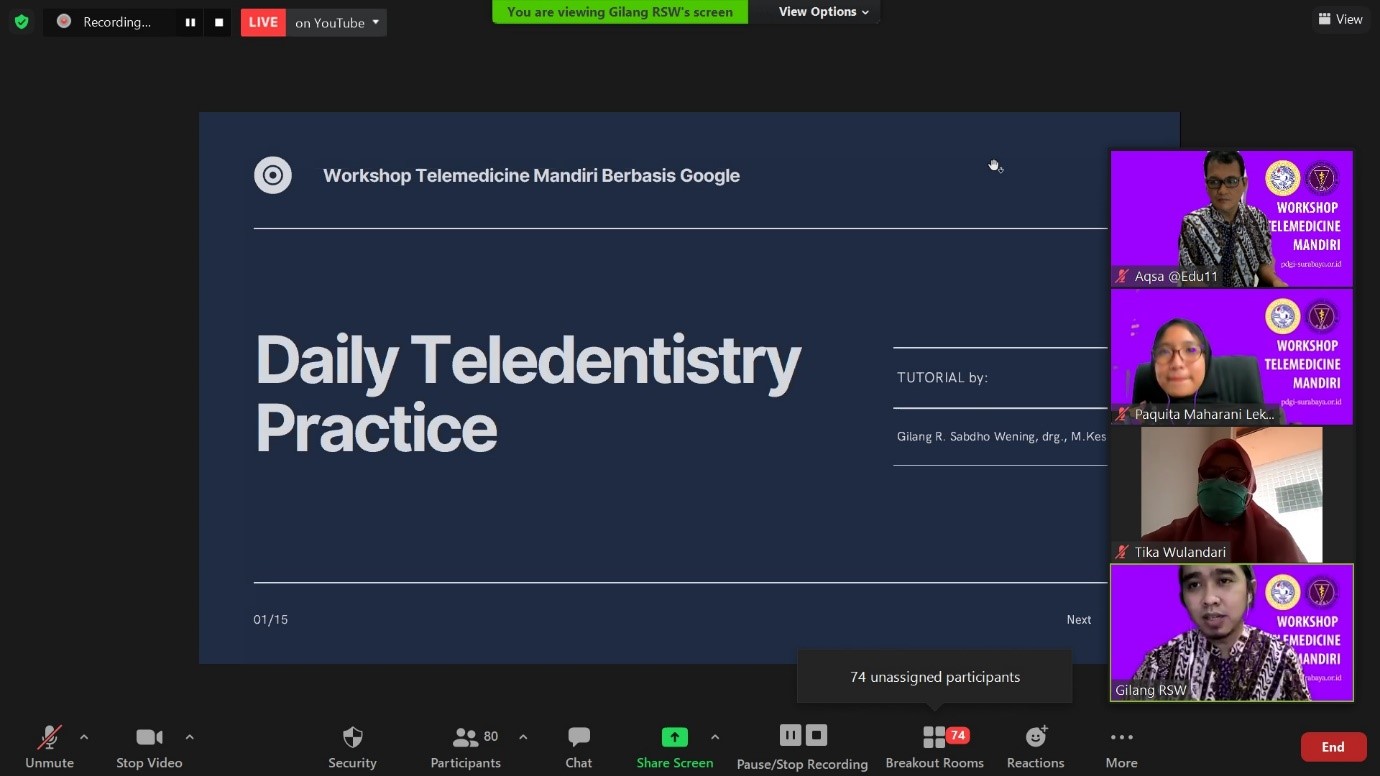UNAIR NEWS – Without a doubt, dentists are one of the professional groups most vulnerable to Covid-19 transmission. The pandemic that has occurred since March 2020 has put this professional group in a difficult position. If you continue to practice, your health safety will be threatened. If they do not practice, they will be bound by a professional code of ethics that should help patients in any condition.
As a leading educational institution in developing telemedicine in Indonesia, UNAIR Faculty of Dental Medicine, through a community service team led by Aqsa Sjuhada Oki, drg, MKes, initiated an independent telemedicine workshop for dentists. By cooperating with the Surabaya, Sidoarjo, and Madiun Branch of Indonesian Dentists Association (PDGI), this activity was conducted in a webinar workshop format with live demo and training.
drg Aqsa said that the aim of the activity was to improve the ability of dentists in Surabaya, Sidoarjo and Madiun to implement independent and appropriate telemedicine in their respective practice places. With the application of this application, patient scheduling, case selection, initial diagnosis, and payment can be done online.
“The physical meeting between the dentist and the patient is as short as possible by determining the diagnosis and treatment plan that has been carried out previously through an application that the doctor can make himself,” said Aqsa.
When a patient meets a doctor on a predetermined schedule, he continued, the doctor has been able to determine complaints, initial diagnosis, treatment plans, and even treatment costs. With this method, the safety of doctors and patients in the possibility of contracting Covid-19 can be reduced, because 60 percent of the time to face physical contact with patients can be reduced.
To be able to do this method, the participants were given training on creating a Google-based independent telemedicine form. Furthermore, mobile-based dental photography training was also conducted to support this independent telemedicine.
With independent telemedicine, dentists have a wider choice besides the telemedicine application, which is already available in the online application. To measure the effectiveness of this activity, pre and post-tests were conducted to see the cognitive, affective, and psychomotor aspects of the participants related to the implementation of telemedicine in the pandemic era.
The speakers in this activity were Gilang Rasuna Sabdho Wening, drg, MKes with the Google-Based Self Telemedicine Workshop and Setyabudi, drg, MKes, SpKG (K) on the Smartphone-Based Telemedicine Photography Workshop.
The positive results of the workshop were the issuance of a Professional Credit Unit (SKP) by the Executive Board of the Indonesian Dentists Association for workshop participants and the ability of most participants to apply independent telemedicine in their respective practice places.
Videos can be viewed via the following link: https://s.id/telemedicine_rec
Editor: Binti Q. Masruroh





